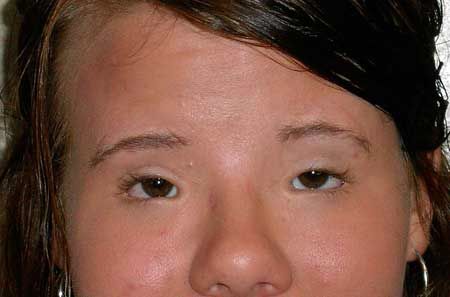New action on pregnant women who drink
27 February 2014
 ALCOHOL WATCH #12 by Russell Guy
ALCOHOL WATCH #12 by Russell Guy
FOETAL ALCOHOL SPECTRUM DISORDER RESEARCH
The National Health and Medical Research Council (NHMRC) has funded three research projects into Foetal Alcohol Syndrome and Foetal Alcohol Spectrum Disorders (photo).
These include behaviour support training, building capacity for screening and diagnosis through a prevalence study: The Cherbourg Project, and proving the management of youth with foetal alcohol spectrum disorder in the justice system.
Brooke Boney, (NITV News, 17/2/14) reports that despite narrowing the focus of the Federal enquiry into alcohol consumption in Indigenous communities from the wider Australian community, “some groups are relieved. Dr John Boffa of the (NT) People’s Alcohol Action Coalition (PAAC), said they have been calling on the government for a review since the Banned Drinkers Register was abolished.
“I think if the inquiry is done well, it’s got the potential to provide some solutions that will address alcohol misuse not just amongst Aboriginal people but amongst the broader populations as well.”
Michael Kenny (World News Radio, 18/2/14) reports: “Some Indigenous health groups are hopeful the inquiry could lead to more effective strategies to tackle alcohol abuse, providing Indigenous communities are properly engaged as part of the process.”
CALLS TO INCREASE DRINKING AGE
World Family News (February 2014) reports that the Rev. Fred Nile, Leader of the Christian Democratic Party, “fully endorses Ita Buttrose’s call to increase the legal drinking age to 21 years.
“In view of the growing amount of new evidence concerning the development of the adolescent brain which clearly proves the damage that alcohol causes, I originally introduced my Alcohol (Liquor Amendment Drinking Age) Bill in 2008, so as to increase the legal drinking age to 21 years as is legal in many USA States.
“The rising adolescent road toll and binge drinking requires urgent action to protect the youth of this nation,” said Rev. Nile.
CLOSE THE GAP – TURN DOWN THE TAP
Suntory, the Japanese-owned company who recently purchased US liquor producer, Jim Beam for A$15b is about to embark “on an offensive” to capitalise on the brand’s recognition in the US, Europe and emerging economies such as Brazil and India (Australian, 19/2/14).
Indigenous organisations calling for community consultation in the Federal enquiry will find that they are up against the might of global alcohol consortium and its local promotion, which for decades has reaped a killing from Indigenous consumers.
The emerging Indigenous economy, like those of Brazil and India is water under the bridge for the alcohol industry.
Governments can crow over statistics, but until they get serious about supply reduction, the killing will continue, the Gap will fluctuate and more well-intended programs fail at great expense to all Australians, but most significantly, Alice Springs will reap the social dividend.



Anything that can be done to reduce the incidence of foetal alcohol damage deserves support. This is a life-long sentence inflicted on an unborn child, and it amounts to a most heinous form of child abuse.
Education is key, but to get through to young girls who have no education is difficult. They are not clever. They are pregnant and in danger of damaging forever their unborn child.
By all means turn down the tap, but first and foremost educate the young girls before they reach child-bearing age. They only drink because they know no better.
Hal Duell is right: FASD education aimed at young women is important, and it is already happening in our region, as the short animated film “Barkly Fights FASD” and the rap song “Alcohol it effects your babies” both well demonstrate.
However, I don’t agree that education should be ‘first and foremost’. My reading of the research on education programs is that they are among the most popular of alcohol measures – and among the least successful in actually reducing harm.
That said, FASD education is in a special category: if a program like the Anyinginyi fetal alcohol spectrum disorder project persuades just one young woman not to drink during her pregnancy, it will be worth its weight in gold: they don’t call infants born with FASD “million dollar babies” for nothing: the lifetime cost to our community to care for each of them can be prodigious.
To minimise the scourge of FASD, we need to both turn down the tap AND pump out the message.
Let them drink themselves to death. Do not waste taxpayer money to intervene. They do not want the children when they have them they are only neglected.
They only want the money to have them.